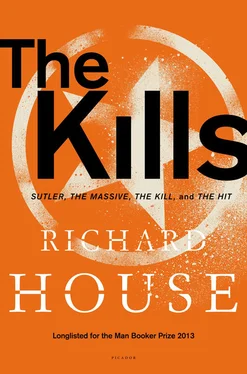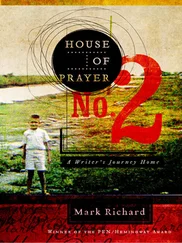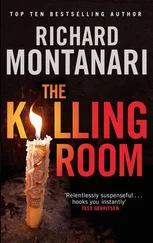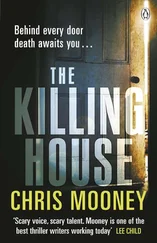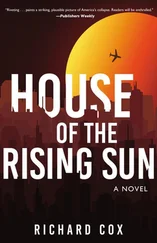* * *
At midday Grüner received another call from Heida. There were problems, she complained. Her passport, her wallet were stolen. I have no money. To add to this the coaches out of Ankara were fully booked, not one spare seat between them, and there was trouble at the airport in Ankara, just as there was trouble in Istanbul. No flights. Nothing. Not one. What was going on? She couldn’t believe her bad luck.
Grüner tried not to sound happy. ‘I have him. He’s here.’ He whispered into the phone, aware that the walls were thin, that the hostel was busy with Europeans, some of them German. ‘He has paid for two nights. At the moment he’s in his room. I don’t think he’s going anywhere. He hasn’t eaten yet. We have him.’
Heida began to cry, and when Grüner asked why, she said that he would mess it up.
‘Why?’ he asked, astonished. ‘How can you say this?’
‘Because this is what you do. You make a mess of everything.’
‘No.’ He tried not to raise his voice. ‘How? Why do you do this to me?’
Heida fell into deeper misery, the same stormy, sulky desperation she sank into every time she didn’t get her way. Grüner looked at the phone, appalled. ‘I don’t understand. I’m where you told me to be. I’ve done everything you said. This is what we’ve been waiting for. Always. One chance, and then you say this shit to me. I don’t know what you want. It’s not right. You can’t say these things.’
He waited for Heida to compose herself, and pictured her making a show of her misery. An adult slumped on the kerb at the coach station sobbing with frustration — a slightly repugnant image. People would feel sorry for her. Someone would pay for her ticket, find her a seat. One way or another she would get what she wanted. He said goodbye quietly, cancelled the call, then switched off the phone. He would not take it with him when he went out.
4.4
Ford fought against his instinct to hide and forced himself to wander through Eminonu, through the covered markets, the sidewalk crush, and the tight streets that fed the open promenade beside the smog and bustle of the Golden Horn — a crowded quayside, grey and busy with launches, tugs, and ferries.
He walked inland and followed the flow of traffic. The air sweetened by almonds and coffee at an intersection where the streets rose and gave way to warehouses and workshops. Here he found banks, an internet café, and the first of a number of currency kiosks set in an open market selling spice, water-pipes, headscarves, lokum, and old books. You’re going to prison, he told himself, you will be caught. Why are you even considering this? He walked as if browsing, a man with time to investigate the city. To draw attention to himself he bragged at the money changers. He had traveller’s cheques, he said, and he needed American dollars. He ambled from one kiosk to another asking at each what the daily limit on any exchange might be and if they could give him a competitive rate. The clerks, each of them, wanted to know how much money he was dealing with as dollars were hard to come by, and Ford said that it was several thousand, he needed to have the cheques cashed today, as a matter of urgency. They listened to him, then waved him away.
Back at the port he found the attention he wanted. In a small kiosk beside a transit booth the clerk quickly became irritated and his gestures drew the interest of a small group of bystanders. On leaving Ford noticed that he had acquired the company of a dour, sweaty man.
When he walked away the man followed.
‘Excuse me.’ The man hurried after him. Not so different in appearance from Ford, the man wore a casual summer suit which hung loose from his shoulders. English-sounding, he spoke with an accent so schooled and refined that he might not be English at all. ‘I couldn’t help overhear. These people can’t help, and if they could you wouldn’t get the best exchange. I know someone who can give you a favourable rate. How much do you require?’
Ford stood among the cars stalled in the midday traffic, the sun directly overhead, a bright heat rebounding from the vehicles. The man led him to the pavement. ‘I will take you to someone. Five minutes from here. If you don’t like him you can leave. It’s not a problem.’ Not waiting for Ford’s reply the man stepped swiftly into a side street. He caught Ford by his sleeve and asked if he realized that he was being followed. The courier indicated over his shoulder. ‘He’s beside the bird cages, on the opposite side. A black shirt. Do you know this man?’
They looked cautiously out of the alley to a street thick with people. On the opposite kerb, crouched in a doorway decked with small wire and wood cages, Ford spotted the journalist Grüner. Clear and unmistakable. He winced at the coincidence. How was this possible? Grüner made a poor job of hiding. Having lost sight of Ford he dithered at a doorway and stepped in and out of view. Ford carefully scanned the street. If Grüner was here, the other journalist would not be far behind.
‘Did you notice anyone else?’
‘No. He’s alone.’
‘When did you see him?’
‘He has been following you for a while. When I saw you, I saw him. He isn’t so careful.’
Alarmed, Ford began to hurry away, the idea of capture, prison, less abstract than before. The courier followed closely behind.
‘Sir, sir! I can help with this also.’ The man overtook him and indicated a smaller alley which led back to the main street. He told Ford to follow after him. ‘Let him come with us. It will be better if he sees where we are going. It is here, just here.’
* * *
The alley opened to a curved avenue of white-fronted workshops. The courier asked Ford to wait and entered a travel agency alone, a shabby shop-front with cardboard taped over the glass door. Above the store hung a sign, Cossack Travel, in English and Cyrillic, white figures printed on a bold red ground. Grüner blundered into the street, then stepped back out of view. Inside the shop, lodged in a chair behind a wood desk, sat a fat man in a light summer suit. Both men looked out at Ford and Ford asked himself if he could trust them. The larger man leaned back in his chair and indicated that Ford should come in and signalled him to a seat opposite his desk.
The courier came to the door. ‘Please,’ aware of Ford’s reluctance the man waved him forward, ‘this is Afan Zubenko. He is a good man and he will help you.’
The courier spoke to the travel agent in Turkish. The fat man squabbled without interest and became curt and dismissive, his voice rolled from a thick creased neck. The courier leaned over the agent’s desk, willow-like, a vagueness to him, and Zubenko waved him away. He closed his eyes as he spoke. ‘Come back to me later. Now, go. Go! Go, go, go, go, go.’
As the shop door swung shut, Zubenko turned his attention to Ford. He settled his arms either side on the armrests, palms up, in a gesture of gathering calm. ‘I understand that you are interested in changing money. You have traveller’s cheques? If you are interested I think I can help you.’
How fat this man was, how sack-like, with a huffing breath, a stomach of stacked lobes and the same exhausted quality to his gestures and expression.
Ford looked back at the street for Grüner. The agent tilted his head and the sun cut a hard line across his baseball cap, his thin ponytail, as he appeared to study him. ‘Tell me your business and let me see what I can do.’
‘I want to cash some traveller’s cheques before I leave tomorrow.’
‘And how much do you need to change?’
‘Two thousand, in American dollars.’
‘American dollars are difficult to find at the moment. You have identification? You have your passport?’
Читать дальше
